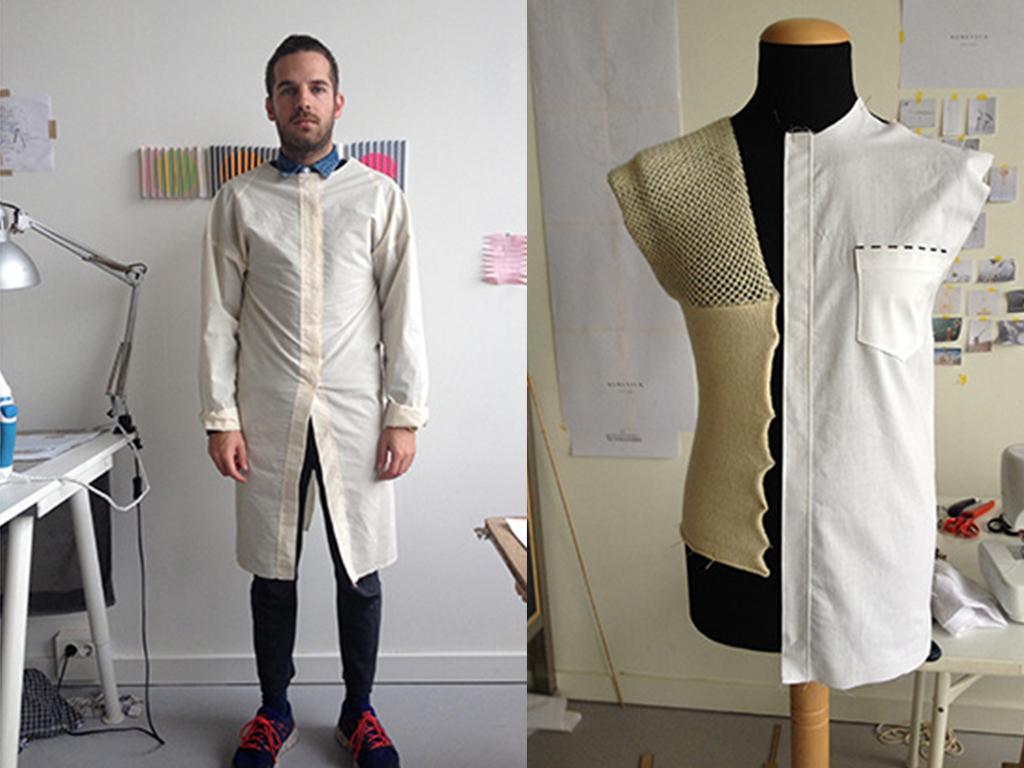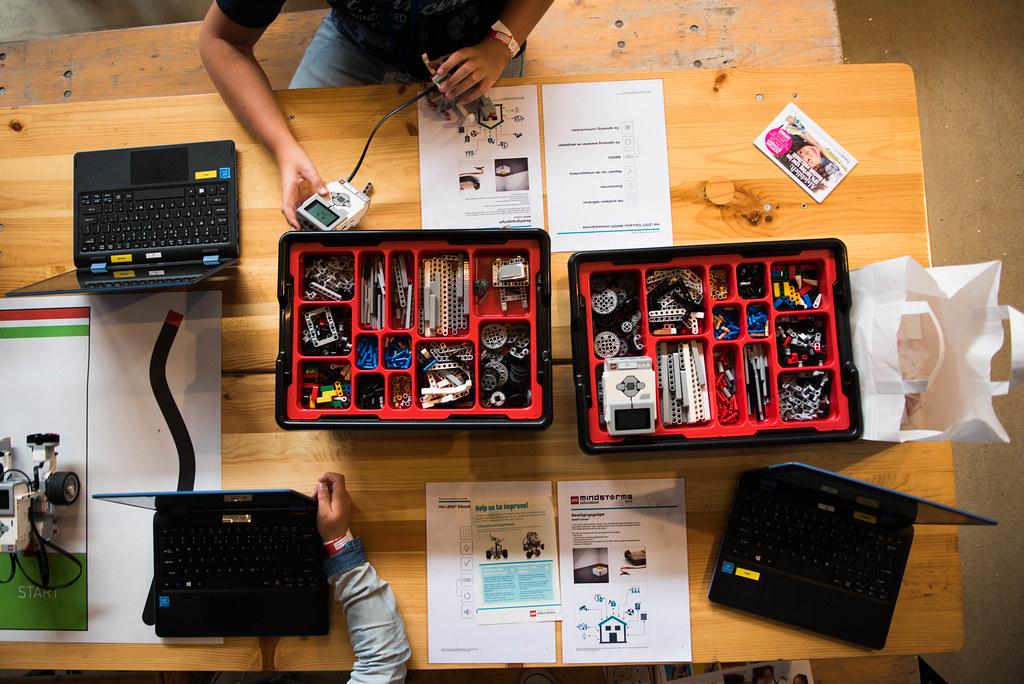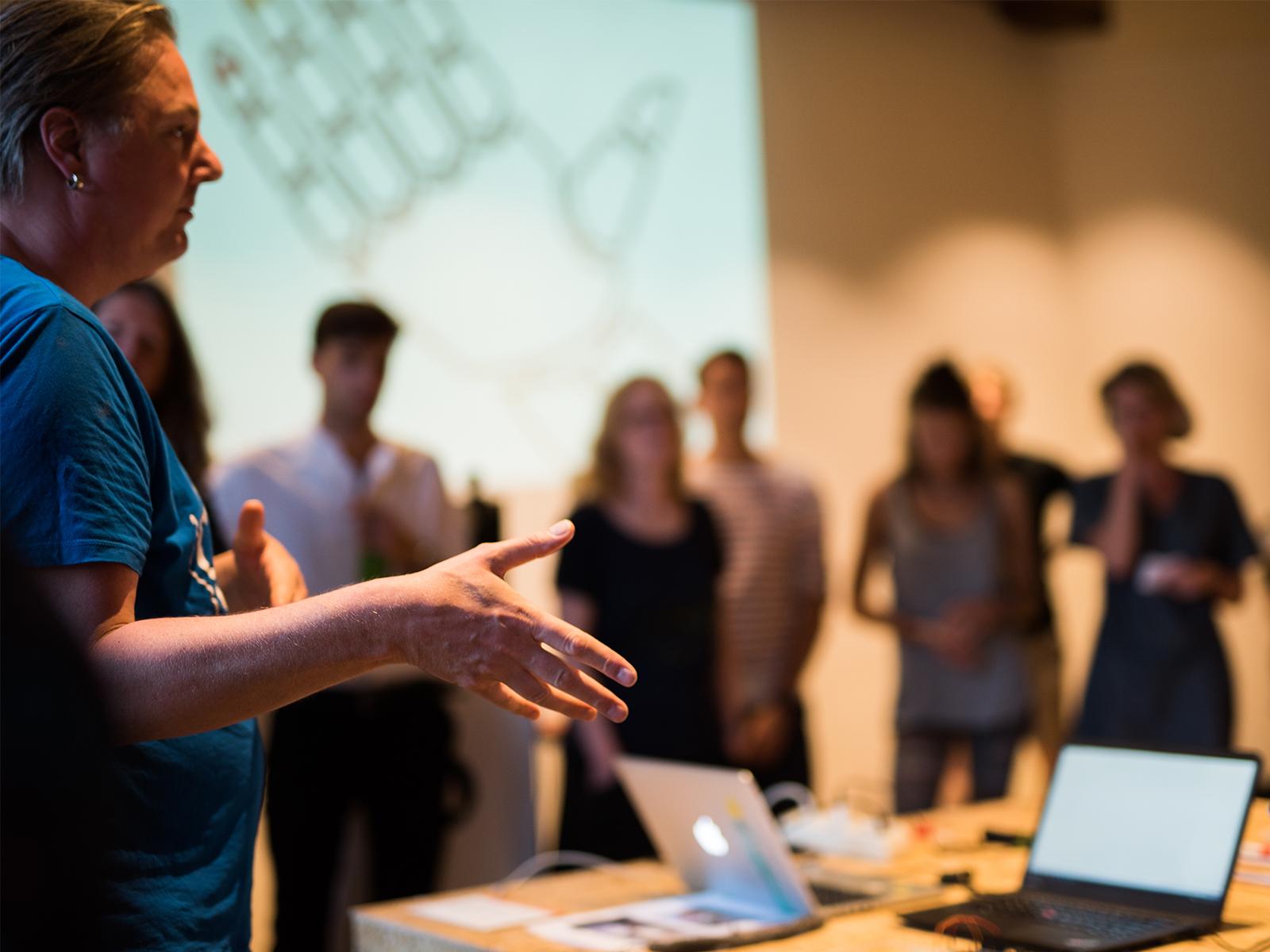Inspiration and acknowledgment is what MakeHealth is about. MakeHealth is a program that explores how patients and healthcare professionals could create solutions for their own personal challenges. This blogpost aims to give an impression of the changing roles of patients and healthcare professionals by stringing together the statements and visions of the different speakers at the third MakeHealth meetup at Pakhuis de Zwijger.
“I am a doctor, I don’t do stuff like that”
Being a doctor himself, Robbert Bentvelsen is fully entitled to state that the most common response of a doctor on patient empowerment or joining a healthcare hackathon, sounds like this: ”I am a doctor, I don’t do stuff like that!” Bentvelsen became the national winner of Hacking Health, with the the app ‘Participatiënt’. Together with his team he developed this application to let patients contribute in preventing infection diseases in the hospital. During his work as a doctor, he noticed that some patients tend to act passive, while others tend to be critical and put doctors on edge. With his app, Bentvelsen aims to demonstrate the importance and positive effects of patient participation.
An advocate of patient participation
This focus on creating solid arguments that contribute to the acceptance of the idea of the importance of patient participation is shared and supplemented by Joost Brillemans. With his background as an organizer of Hacking Health Leiden and project lead of patient centred care at LUMC, he succeeds in convincing the audience of MakeHealth meetup #3 of the benefits of organizing more small hackathons. These hackathons will lead to more healthcare innovations by the contribution of patients and professionals.
A critical patient
Being an amputee ánd mechanical engineer, Bart Griffioen claims to be one of those ‘Critical Patients’. Knowing that there must be better ways to improve his mobility, he started constructed his own prosthetic foot. “Doctors don’t fully understand,” he said, and he discontinued his rehabilitation treatment. He fully focussed on the achievement of his own solution, with amazing results. With his flexiwalker, he even turned back into ice skating. Griffioen purposes to market his product, but the many obstacles on this road brought him to the MakeHealth meetup, looking for discussion and inspiration.
Acknowledgement by discussion
Jurre Ongering, project developer at Waag, tells us that one of the goals of organizing MakeHealth is to acknowledge that this evolution is happening here and now. Ongering is much interested in thinking out ‘what happens when you do it’ by discussing different topics regarding developments in the field of healthcare. Insurance for instance: Healthcare in general is getting more expensive and the governments retreat more and more. People are almost forced to become more self-sufficient in healthcare.
Hack the regulation system
But our economy is (not yet) build on that. Janine Huizenga, designer at Waag and teacher at Willem de Kooning Academy, points out that we should design tools together to fill that gap. We need to overcome challenges like Insurance and Regulation and guide entrepreneurship it this field. Janine advices to use lifestyle as a channel to hack the regulation system, after a proven success it is much easier to turn it into a medical application.
Appeal to lifestyle
This lifestyle-approach of change is also the strategy of designer Jeffrey Heiligers, who’s product ‘Posture’ is made for young and fit people. He worked closely together with physiotherapists on a system that prevents back, neck and shoulder pain. Prevention is a great benefit that eventually reduces healthcare costs, an important argument in the context of healthcare and society, but the innovative product also appeals to the nowadays popular lifestyle motive to live healthy.
Conclusion: change is needed and is near
The critical thinkers of the third MakeHealth meetup presented a radically innovative perspective on healthcare design. The scenarios that are being presented are so convincing and appealing that the next generation of doctors might be tempted to say “I’m a doctor, why wouldn’t I do stuff like that!”.


